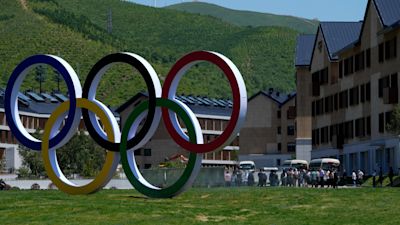Insight
Beijing 2022: Chinese authorities mull tighter curbs for winter games amid Covid fears

China loves a first and it will soon make another, becoming the only country to host both a Summer and Winter Olympics.
With that accolade to honour, the country is determined to put on an historic event. Despite protests, the pandemic and calls for another postponement, Tokyo 2020 went ahead, and it is now Beijing’s turn to stage an Olympics under the same cloak of controversies and Covid-19.
The virus is still raging in several parts of Asia and it recently made an uncomfortable return to the Chinese mainland, the Delta variant breaching what were supposed to be impenetrable domestic controls.
It is clear the Beijing Games will have to be held under the same restricted conditions as Tokyo.
I say the same, but if what was imposed in Japan was deemed strict, that will be nothing compared to the measures being mulled over by the Chinese authorities.
There is still a three-week quarantine policy in place for anyone arriving in the country, that is unlikely to be relaxed for the Winter Games. If anything, there is the suggestion it could be increased to 28 days. Foreign spectators are likely to be banned, as they were in Japan, and those arriving from abroad to compete, report or support will be made to enter a tightly controlled bubble where their every movement, even their hourly temperature will be tracked.
The country has been trialling underarm thermometers, worn at all times, so that anyone developing a fever can be identified and sent to isolation. There has been no official word from China on the virus-related restrictions it will impose but having lived in the country through the various stages of this pandemic, I can say with a high degree of certainty they will be sophisticated, comprehensive and uncompromising. As the government considers how to deliver what it has promised will be a ‘’safe, simple and splendid Olympic gathering’’, there are also growing calls for countries to boycott the Games altogether.
Boycott calls are nothing unusual ahead of an Olympics and China faced similar demands in the run up to its showcase Summer Games in 2008. But today the country is quite different and the accusations against it are greater.
Its list of human rights violations has grown longer just as its status in the world has got higher.
The British Government has followed the United States in saying it will consider sending its athletes but no dignitaries, in protest at China’s treatment of its ethnic minorities and the imposition of a National Security Law in Hong Kong that has led thousands to flee the territory seeking sanctuary in the West. The Chinese Government has dismissed the accusation of genocide against the Uyghurs in Xinjiang as ‘’the lie of the century’’ and has hit back at the UK and its colonial past when defending its actions in Hong Kong. And so the stage is set for the Winter Olympics 2022. The world’s greatest winter Olympians must prepare to enter a highly charged political and pandemic arena.